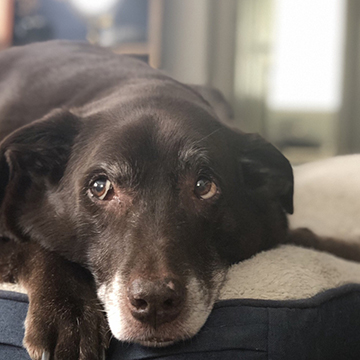Providing Treatment for Cancer in Dogs and Cats in Reno, NV
A cancer diagnosis for your pet can be startling, but it doesn’t mean there aren’t treatment options available to improve their quality of life or even eliminate their cancer entirely. Damonte Ranch Animal Hospital offers a variety of therapies including surgery and primary and adjunctive chemotherapy to give dogs and cats a chance at remission. In addition, our hospital remains in close contact with veterinary oncologists, including experts at UC Davis, to ensure that our patients have access to more advanced cancer care.
Give us a call at (775) 852-8522 to book an appointment.


How Can I Tell if My Pet has Cancer?
Signs of cancer in pets are typically non-specific, which means they could be misconstrued as symptoms for some other condition. Because of this, it’s very important that you meet with your veterinarian to determine their cause. Being proactive about getting a diagnosis could make whatever treatment your pet receives all the more effective.
These non-specific signs include:
- No eating or drinking
- Sudden weight loss
- Vomiting
- Diarrhea
- Trouble breathing
- Coughing
- Lethargy
- Pain
Another sign could be an unusual lump or growth. While many lumps are benign, only a veterinarian can determine if that’s the case.
Chemotherapy for Dogs and Cats
The goal of chemotherapy is to slow or prevent the spread and growth of cancer cells in the body. Chemotherapy for pets works similar to chemotherapy for humans, except its side effects are generally not as severe. Depending on the type of cancer your pet has, the chemotherapy may be given as standalone treatment, or it may be part of a more comprehensive plan that includes radiation, surgery, and other therapies.
Chemotherapy can be given via injection or in tablet form.
What are the Side Effects of Chemotherapy?
Because dogs and cats being treated for cancer receive smaller doses of drugs, their side effects are not as intense and debilitating. However, they may still experience vomiting, diarrhea, loss of appetite, and lethargy.

How is Cancer Diagnosed in Pets?
In addition to the physical exam, getting the most accurate diagnosis of your pet’s condition may also require blood work, ultrasound, X-rays, and a biopsy for confirmation. Keep in mind that we can only help if you let us know that your pet is having a problem. If they seem unwell or you notice a strange lump under their skin, the best thing to do is contact your veterinarian. We are always happy to help you in any way we can.
Dogs and cats with cancer can still live a good life, granted they receive treatment in a timely manner and regularly visit their veterinarian for checkups. A cancer diagnosis does not have to be a final one--there are options available for treating your pet and giving them the chance to spend more happy years with you.
